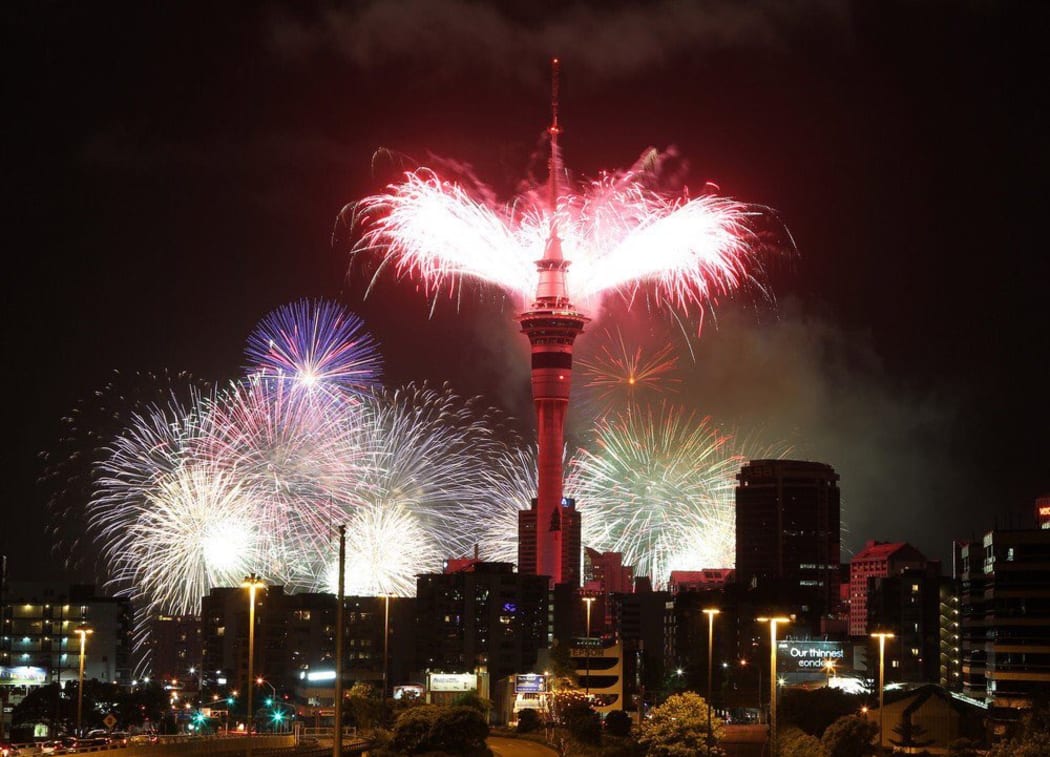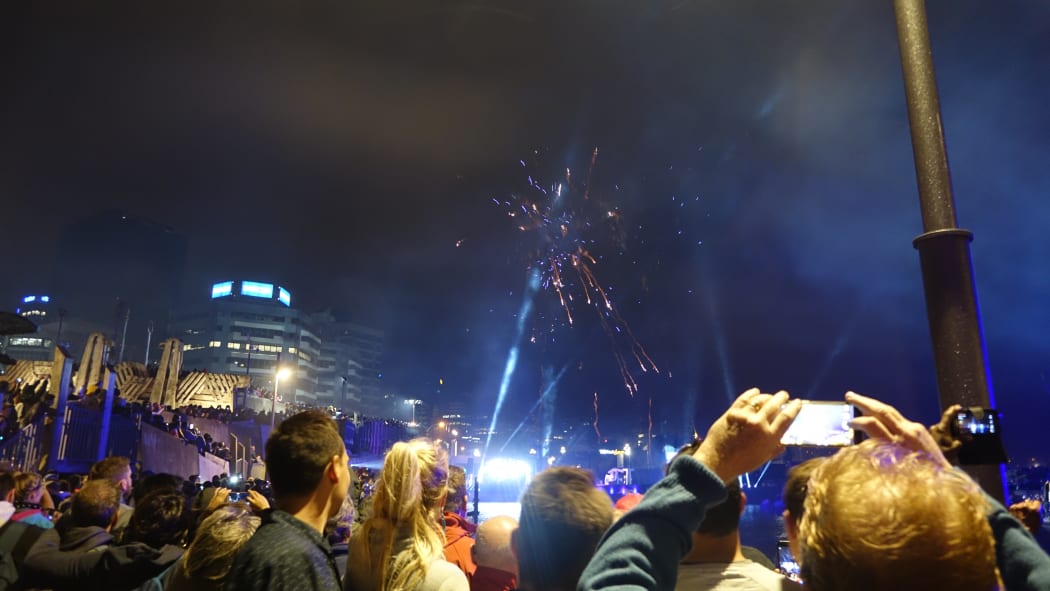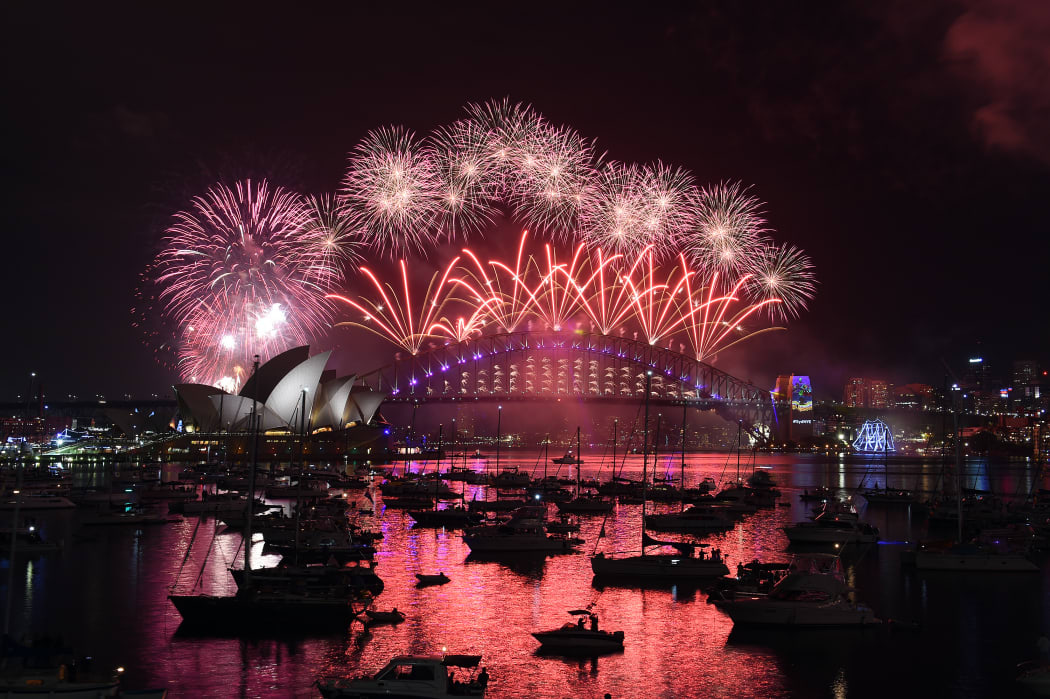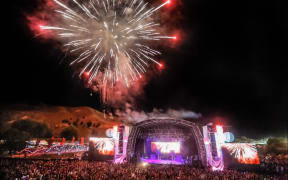Celebrations are continuing as people around the world ring in the New Year.
From Sydney to Pyongyang, festive crowds gathered to say goodbye to 2016, a tumultuous year in global politics.

The five minute fireworks display at the Sky Tower took five technicians 350 hours to set up. Photo: Supplied / Twitter
Pacific islands including Samoa, Tonga and Kiribati entered 2017 at 10:00 GMT, followed an hour later by Auckland, the first major world city to welcome the New Year.
Auckland ushered in 2017 with 500 kilograms of fireworks set off from the 328 metre tall Sky Tower.
The skies were clear for the thousands of people who gathered in the CBD to watch the display and enjoy live street music.
A countdown clock was beamed on to the side of the Sky Tower and at midnight a big cheer went up among the crowds gathered on Federal Street below.
The five-minute fireworks display, which was paid for by Sky City, took five technicians 350 hours to set up and five months to design.
In Wellington, wind and spots of rain couldn't keep the revellers away from an event staged by the Wellington City Council, as hundreds gathered at Frank Kitts Park to celebrate the new year.
Following a free concert and the countdown just before midnight, as the clock struck 12 a fireworks display lit up the sky, with the straining notes of Bill Conti's theme song to the 1976 film "Rocky" struggling to be heard over the din.

The crowd in Wellington dispersed fairly soon after the fireworks display with many continuing their celebrations at nearby clubs and bars. Photo: RNZ / Emile Donovan
Increased security
Many cities around the world have stepped up security for New Year's Eve celebrations, after a year in which attackers drove lorries into crowds in Berlin in Germany and Nice, France.
Thousands of extra police will be on duty in London and other cities.
In Paris, Madrid and New York, concrete barriers and heavy goods vehicles will be used to block off central squares where crowds gather to celebrate.
Some 17,000 police officers will be on duty in the Turkish city of Istanbul, with some disguised as Santa Claus and street vendors, the state-run Anadolu news agency reported.

In Sydney, seven tonnes of fireworks were set off in two displays watched by about 1.5 million people. Photo: AFP
The iconic midnight fireworks display at Sydney Harbour in Australia paid tribute to Prince and David Bowie, two music superstars who died in 2016.
"This year, sadly, we saw the loss of many music and entertainment legends around the world," fireworks co-producer Catherine Flanagan said.
"So celebrating their music as part of Sydney New Year's Eve fireworks displays is an opportunity to reflect on the year that has been and what the future may hold."
Seven tonnes of fireworks were set off in two displays watched by about 1.5 million people.
On Friday a man in Sydney was charged in connection with threats made against Sydney's New Year's Eve celebrations.
Police said he was charged with a "crimes act offence, but not a terrorist offence" and there was no continuing threat to the community.
Israel has also warned its citizens travelling in India to avoid crowds, saying there is a risk of imminent "terrorist attacks".
'Many enemies'
Meanwhile, US President-elect Donald Trump tweeted New Year greetings, including to his "many enemies".
Mr Trump will be sworn in as US president on 20 January.
A "leap second" will be added to the countdown in countries in the GMT timezone including the UK to compensate for a slowdown in the Earth's rotation.
The extra second will occur as clocks strike midnight and a time of 23:59:60 GMT will be recorded, delaying 2017 momentarily.
This is required because standard time lags behind atomic clocks.
BBC / RNZ




